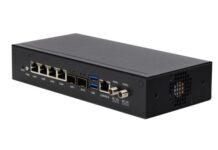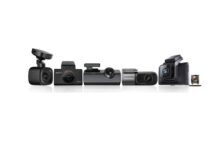Hikvision has launched a new series of eDVRs that use embedded solid state drive (eSSD) storage instead of HDD, delivering major improvements in stability and efficiencies vs. traditional DVRs.
Differentiation
The eDVR Series is Hikvision’s latest generation of DVRs. Its most distinguishing feature is that it uses eSSD storage.As you know, traditional DVRs use HDD drives, and by contrast, the new Hikvision eDVRs replace the mechanical moving parts of HDDs with eSSD chips. That makes them more stable, more energy efficient, more compact and more cost effective.
eSSD Storage Advantage
eSSD is a highly compact, super-high performance storage chip that supports advanced software functionality with a high level of reliability. It combines two components – a ‘controller’ and a ‘nand’ – into a single, fully integrated solid-state chip unit. The highly integrated 128-layer 3D-NAND technology not only makes eSSD chips smaller in size, but also improves their memory capacity, heat dissipation, and overall electrical performance. Besides, as SSDs are embedded in the devices, users don’t need to worry about assembly, for the eDVRs arrive ready to use with no additional hard drive installation or assembly required. When it comes to video applications, and DVRs in particular, eSSD reduces the size of the storage chip overall, while also delivering major performance gains.
Most special performance gain
They are more sustainable than the traditional DVRs. The eDVR Series uses a single eSSD chip instead of HDD, which has multiple moving parts, such as rotating platters, spindles, and the drive actuator and drive head. This means the new eDVRs are much more durable, less vulnerable to falls and shocks, and require far less maintenance than competing solutions – helping to minimize negative environmental impacts.
Equally importantly, using eSSD storage with no moving parts means that the new eDVRs use around 45% less energy than traditional DVRs. That saves around 45 Kilowatt-Hours (kWh) electricity per year. With this amount of electricity, a smartphone can be fully charged for 3000 times. In a time of energy shortage and electric price hikes, the energy efficiency of the eDVR can make a difference to the size of a business or a household’s electric bills.
To make this product even more eco-friendly, we use cardboard and degradable plastic materials to pack them, abandoning the conventional plastic packages and EPE foams.
Innovative Features
eDVRs have superior coding efficiency, as they use the “scene adaptive bitrate control technology”, which automatically optimizes encoding for video footage. With this technology, higher ‘bitrates’ are assigned to footage with people or vehicles, providing high-resolution recordings of security events for later use. Likewise, ‘no action’ footage is assigned a much lower bitrate to maximize storage efficiency.
Aside from this, the eDVRs are able to support a range of advanced software features including motion detection which is based on Hikvision’s Motion Detection 2.0 technology. This distinguishes human beings and vehicles from other objects, allowing businesses and homeowners to respond quickly and effectively in the event of a security breach.
Applications and Scenarios
Basically, the use of eSSD storage for the eDVR series means that the devices themselves are far smaller than traditional HDD-powered DVRs. This means that they can be stored and shipped far more easily, and installed literally anywhere, from the top of a desk to a post or behind a cabinet. As well as saving space in this way, the devices are extremely simple to install, with no need for the cables or screws typically used to install HDD devices. This saves time for installers and end users, and significantly accelerates deployment of video-related projects of all types and sizes.
You see, these features make them great for both business and residential use. The eDVR Series’ cost-efficiency and simplicity to set up and use makes it accessible to SMB owners and residential users with no particular IT knowledge nor enough time and budget to elaborate a more complex security solution.


















